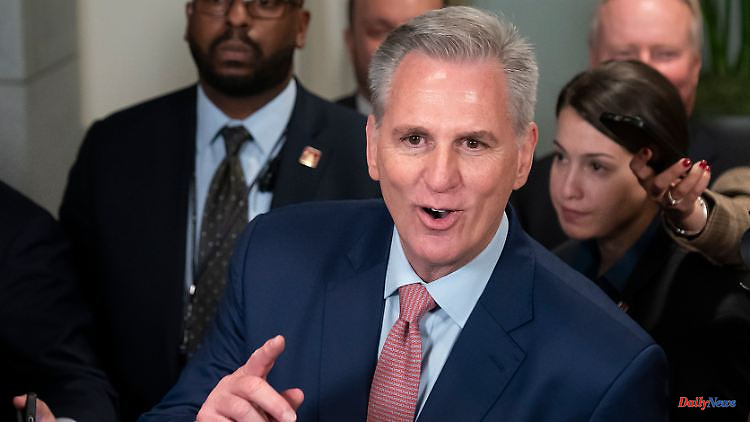Republicans regain control of the US House of Representatives in November. But the distribution of seats is very tight and the Republican faction leader is not without controversy. Kevin McCarthy surprisingly fails in the vote on the future Speaker of the Chamber of Congress.
The Republicans have begun their takeover of power in the US House of Representatives with a historic demonstration of their disunity: For the first time in 1923 years, the chairman of the congressional chamber was not elected in the first ballot. Republican faction leader Kevin McCarthy received only 203 of the 218 votes needed for the powerful office in the inaugural session. 19 members of the Republican party thus voted for another candidate.
The Republicans wrested control of the House of Representatives from the Democrats during the so-called Midterms. However, the result was much tighter than expected: the Conservatives will in future have a majority of 222 of the 435 MPs, the Democrats won 213 seats. Their nominee for the House of Representatives, parliamentary group leader Hakeem Jeffries, received 212 votes in the vote.
At least five ultra-conservative MPs had already declared before the meeting that they did not want to support their 57-year-old party colleague. In this case, the US Constitution provides for voting to continue until a candidate receives the necessary 218 votes - even if this takes hours or, as in 1923, even several days. In the 1850s, it took 133 ballots over two months to elect the chairman, the previous record.
If McCarthy can still convince his party and win the election as Speaker of the House, he would be third in the US political ranking after President Joe Biden and Vice President Kamala Harris.
In the Senate, the Democrats were able to defend and even expand their slim majority in the elections last November: they will in future make up 51 of the 100 senators.












